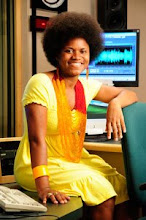Wednesday, January 09 2008
Fighting for Muhammad Ali
(SECOND INTERVIEW)Listen Now!
Rasheda Ali - Rasheda and her father >>
More than 4 million American suffer from Parkinson's disease. Among them is one of the greatest boxers of all time: Muhammad Ali.
Ali's second daughter, Rasheda Ali, was only 10 years old when he was diagnosed with Parkinson's disease. Over the years she researched the disease and struggled to explain to her own children why the hands of their "Poppy Ali" shook all the time. Rasheda has written a children's book about Parkinson's Disease called I'll Hold Your Hand So You Won't Fall.
Dick Gordon talks to Rasheda about how she's tried to help her dad cope with Parkinson's disease, and how she now has the one-on-one relationship with him that she has yearned for since she was a child.
- See art drawn by Muhammad Ali for his grandchildren
- Learn more about Rasheda Ali's children's book
- See more about research on Parkinson's disease
- View the Muhammad Ali Parkinson Center website






